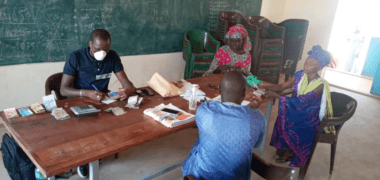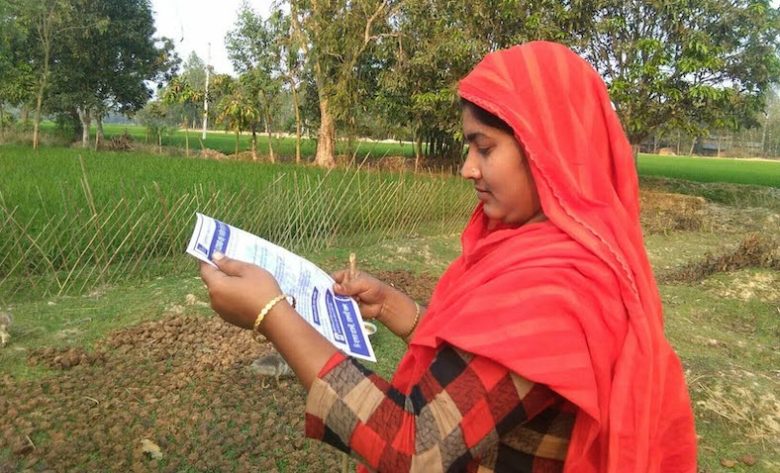The social, environmental and economic effects of the COVID-19 pandemic are rapidly changing conditions in communities around the world — especially in those already at risk for food insecurity. Projections from the World Food Program indicate that up to 265 million people in low and middle-income countries could experience severe food insecurity or famine, this year — nearly double the 135 million people living in acute hunger in 2019.
Our long-term work promoting strong systems, local leadership and resiliency directly addresses a community’s ability to manage these changes, especially in times of crisis. Prior to the pandemic, we already worked with over 500,000 local volunteer leaders in 13 countries around the world. This network has been activated to ensure our community partners have the tools and information needed to respond to any shocks to their food systems. Women leaders in particular are rising as the “first responders” in this global pandemic. They speak local languages, have credibility with their fellow community members, and can quickly identify the most vulnerable individuals and households. We are working to ensure they have access to timely, accurate information and resources as they are critical to mobilizing awareness and often difficult changes in mindset and behavior required.
Deep Dive: COVID-19 Response and Resources
For more on our response to the COVID-19 pandemic around the world, visit our Response and Resources page.
In Africa
In Southern Africa, where the harvest season is ending, our teams activated our network of trained animators to lead the effort to restock local food banks. In other parts of Africa, where communities are entering planting season, volunteer local leaders (known as animators) are urging farmers to plant despite the pandemic and have trained people how to do so while maintaining recommended distancing. Where necessary, we are working with communities to access markets to resupply the food banks with dry rations.

Community partners at the Sam Contour Epicenter Rural Bank in Senegal; April 2020.
Across Africa, rural banks at epicenters are operating with protective measures in place. This is a crucial time for many farmers; they need to deposit earnings from the harvest or take money out of their savings to buy seeds to plant. By keeping the banks open we are also ensuring that people can freely use their savings to purchase nutritious food, should there be a dramatic increase in price or a shortage.
Local leaders are leveraging radio, loudspeakers and megaphones to share messages about food security and nutrition, continuing our programming on these topics from a safe distance.
In South Asia
Our food security efforts in South Asia hinge on connecting people impacted by the COVID-19 pandemic to government schemes and support.
In India, Elected Women Representatives, local staff and our local partner organizations have personally reached out to each one of the 8,000 elected women that have gone through our training program to equip them with information about the virus and new government relief efforts. These women can then confidently connect their constituents, including returning migrant workers who are at significant risk for food insecurity, with the safety net programs.
Additionally, they are leveraging local and state level media to highlight the shortfalls and challenges of delivering services, including food rations, during the pandemic. This advocacy work is critical so that systems are improved and can function efficiently if the relief is needed long-term.
In Bangladesh, our networks of volunteers are connecting their communities with government support schemes, though many were already overstretched before the pandemic. To ensure that their neighbors are taken care of, many of our volunteer networks have started community-based philanthropy efforts to address immediate needs (food, medicine, cash money, soap, mask, hand sanitizer, etc.) of marginalized people at community level.
In Latin America
In Mexico, we’ve worked to mitigate the economic impact of government-mandated shutdowns. For example, our team is conducting remote training and providing information to support businesses with innovative strategies to adapt their work to the current environment. This effort will allow the women working in textile cooperatives the opportunity to continue to support their families and communities through the pandemic.
Seeing community leaders stepping into their leadership to address the many ripple effects of COVID-19 has reinforced the importance of community-led development—for long-term progress and to mitigate the effects of crises.
To learn more about the novel coronavirus COVID-19, we direct you to the World Health Organization website. We particularly recommend reading the myth busters page to counter the spread of misinformation.

